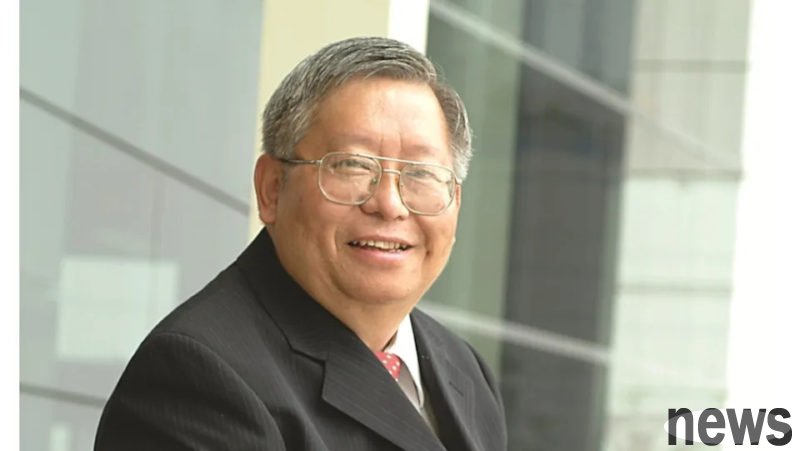
The semiconductor industry recently dropped a shock bomb. According to a report by the Free Times citing market news, Luo Weirenfu, the former senior deputy general manager of technology research and development and corporate strategy development of TSMC, the leading wafer foundry, retired at the end of July 2025. In just three months, it was reported that he would return to TSMC's main competitor Intel (Intel) to take charge of its research and development department. Because Luo Weiren has worked at TSMC for 21 years, he has experienced high-level operations and R&D positions and understands many internal R&D and production confidential information. Therefore, even though TSMC has grasped this relevant news, it still attracted the attention of the industry immediately after the news was exposed.
The report emphasized that Luo Weiren has deep qualifications in the semiconductor industry. After graduating from the Department of Physics at National Taiwan University and receiving a PhD in solid-state physics and surface chemistry from the University of California, Berkeley, he served as the director of Intel's Advanced Technology Manufacturing (CTM) in his early years. Later, he joined TSMC in 2004 and experienced the two core areas of internal operations and R&D. He served as the deputy general manager of the operations organization and served as the deputy general manager of R&D from 2006 to 2009. Subsequently, he was promoted to Deputy General Manager of Manufacturing Technology for the Advanced Technology Business and Operations Organization.
In addition, Luo Weiren's contribution to TSMC is crucial. He has promoted the mass production of advanced processes and successfully introduced key EUV lithography technology. He also further established the 7×24 R&D center to accelerate the introduction of technology into mass production. In addition, the "One-Team" collaboration model was also promoted during his tenure, and its model integrates R&D and production processes. In addition, he was involved in important planning in terms of equipment investment and technology decisions.
According to public information, the team led by Luo Weiren has obtained more than 1,500 patents worldwide, of which approximately 1,000 are U.S. patents. During his tenure, Luo Weiren was committed to providing customers with more comprehensive and innovative solutions to help customers face severe technical challenges. He rarely appears in public view, so he was once known as TSMC's most mysterious veteran. Therefore, at present, the Trump administration in the United States is actively deploying local semiconductor manufacturing industries and therefore supports Intel in developing its foundry business. If Luo Weiren does return to Intel in the future, it may have an impact on TSMC's competitiveness and even the overall development of Taiwan's semiconductor industry.
However, despite having served in high-level positions at TSMC and being familiar with internal secrets, the industry has different views on whether he will really return to Intel. In particular, Luo Weiren was highly regarded at TSMC, and his retirement was delayed eight years before the company's retirement age of 67 years. Therefore, some market participants believe that Luo Weiren is already old. Considering his physical condition and his support for TSMC founder Zhang Zhongmou, the matter of returning to Intel should be considered a rumor. Moreover, TSMC has a non-compete clause.
However, some opponents said that the news came out just after Luo Weirenfu retired. Based on his past experience, he must have a lot of confidential information. If this information is brought to Intel, it will definitely be beneficial to Intel's development, but not beneficial to TSMC and Taiwan's semiconductor industry. In addition, because Luo Weiren is an American citizen, even if TSMC has a non-compete clause, it may not be able to impose restrictions.
In fact, Intel is currently working hard to promote intel 18A process technology. However, market news has spread that the yield rate of Intel's 18A process technology is still not up to standard. It has only its own products for OEM production and cannot win the favor of major customers in the market. It is very difficult to compete with TSMC, the leader in wafer foundry. Therefore, any method that can help improve yield will be able to solve its dilemma.
However, some market participants believe that wafer foundry is a collective and organizational war. Therefore, even if Luo Weiren really returns to run Intel's R&D department, it will be difficult for one person to reverse its disadvantage in the foundry field. In addition, there are still questions about whether Luo Weiren can effectively command Intel's personnel and help it improve its mass production technology and yield rate. It is reported that Intel may hope to use the recruitment of TSMC veterans as a sign of issues and as a strategic consideration for its future spin-off of the foundry business.
Luo Weiren's retirement in July is seen as a continuation of the recent generational inheritance of TSMC's senior management. He is the fourth senior executive to retire recently. Before him, several senior management members have retired or announced their retirement, including former senior vice president Rick Cassidy, former senior deputy general manager Lin Jinkun, and former deputy general manager of R&D Yu Zhenhua, one of the "Six Knights of R&D." TSMC also expressed its gratitude to Luo Weiren for his contributions over the years. Public information shows that Luo Weiren sold 46 TSMC stocks on the eve of his retirement, but still held 1,348 178 TSMC stocks. Based on the closing price before retirement, the market value was approximately NT$1.543 billion.
As for the news about returning to Intel, Luo Weiren has not yet responded, and Intel has not announced relevant personnel information, so whether the rumors are true remains to be further observed.
